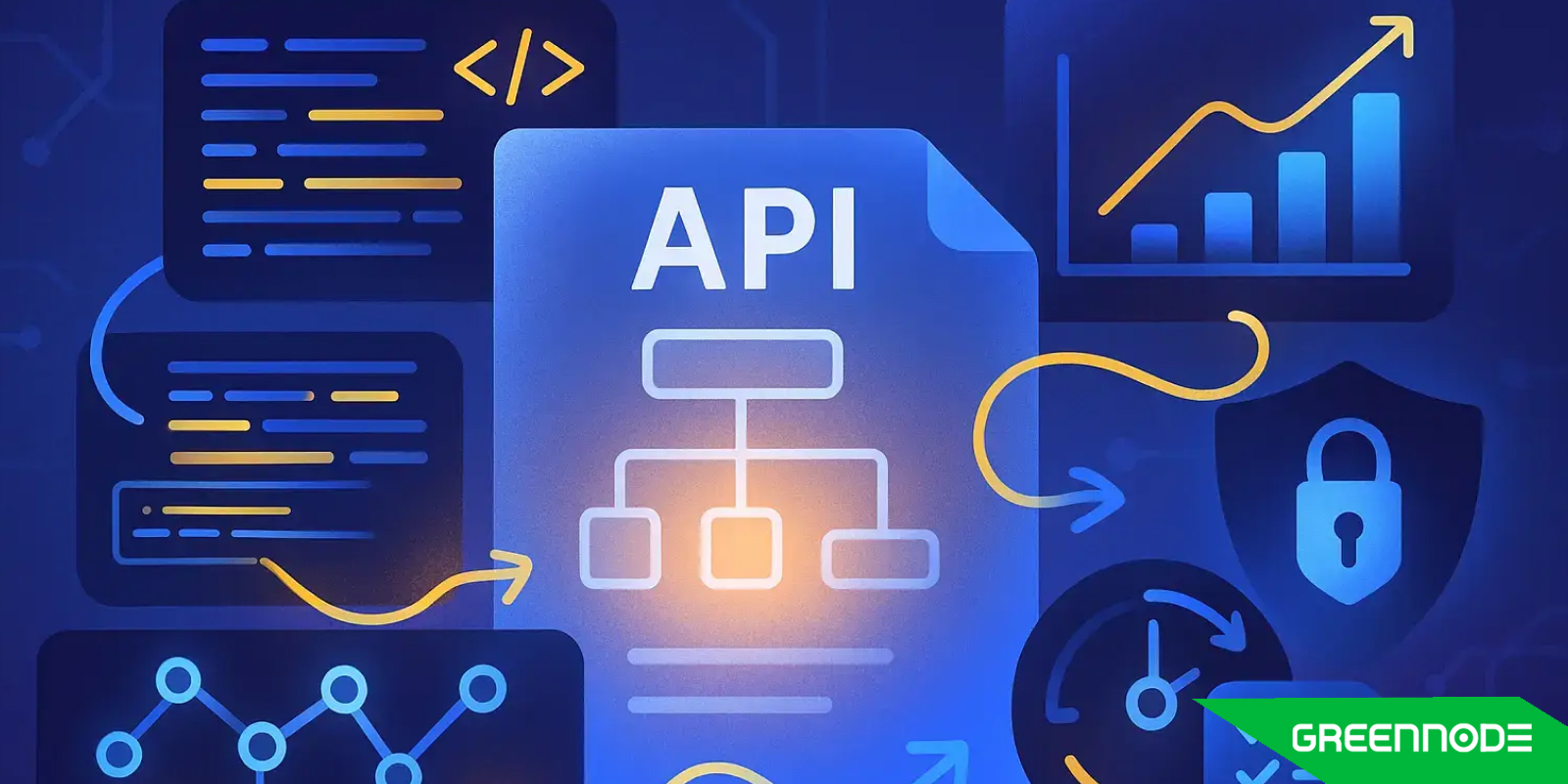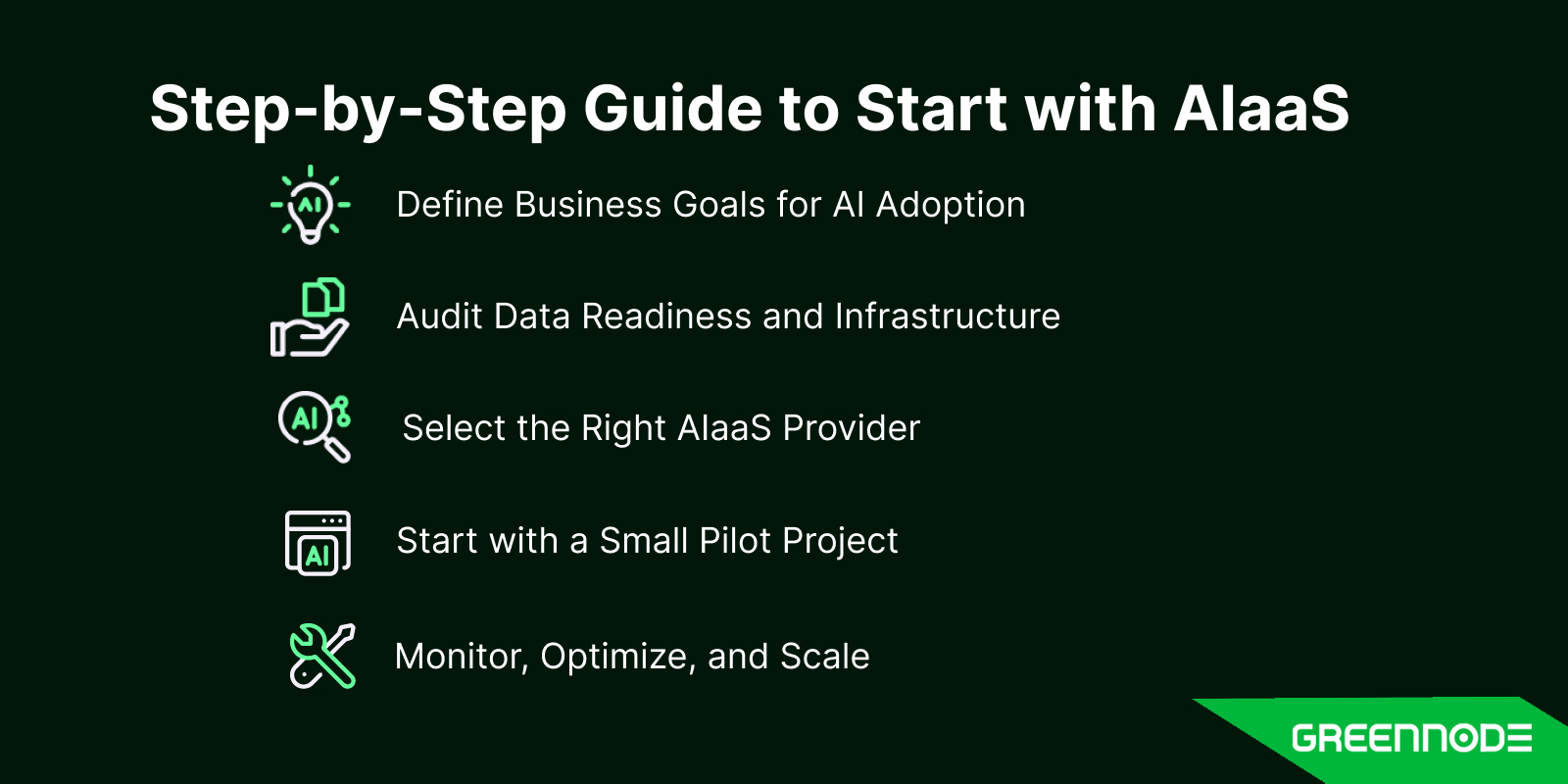Startups are racing to embed intelligence into products, but most struggle with infrastructure, talent, and time constraints. AI as a Service (AIaaS) offers ready-made models, APIs, and scalable pipelines so startups can skip the heavy lifting and push directly into innovation. In this article, we’ll explore how AIaaS can help startups accelerate AI adoption in 2025, covering strategies, benefits, and steps to succeed.
What is AI As a Service (AIaaS) and Why Startups Need It?
AI as a Service (AIaaS) is a cloud-based delivery model that provides ready-to-use artificial intelligence capabilities through subscription or pay-as-you-go pricing. Instead of building machine learning models and infrastructure from scratch, startups can integrate APIs and pre-trained models for tasks like natural language processing, image recognition, and predictive analytics. AIaaS platforms handle the heavy lifting from data pipelines, training environments, to scaling so startups can focus on applying AI to real business problems.
Read more: What is AI as a Service (AIaaS)? Platforms, Benefits, and Use Cases
Difference Between AIaaS and Building In-House AI
The key difference lies in ownership versus accessibility. Building AI in-house requires startups to assemble data science teams, acquire GPU infrastructure, and manage the full lifecycle of model training, deployment, and maintenance. This offers maximum customization and control but comes with high upfront costs, long development timelines, and ongoing operational burdens.
AIaaS, by contrast, delivers pre-built models, APIs, and managed platforms through the cloud. Startups can integrate advanced AI capabilities immediately without heavy investment in hardware or talent. The trade-off is reduced control over the underlying models, but for most early-stage businesses, the speed, scalability, and cost-efficiency of AIaaS far outweigh the complexity of building in-house systems.
Aslo read: Custom AI Model Development: Build or Buy? Which one is best choice for your business
Why Startups Are Adopting AIaaS?
In 2025, the competitive landscape is shifting rapidly: AI-driven products are no longer a differentiator, they are a baseline expectation. Yet many startups face barriers such as limited capital, scarce AI talent, and long development cycles.
AIaaS lowers these barriers by providing enterprise-grade AI at startup-friendly costs, accelerating time-to-market and freeing founders from infrastructure headaches. By adopting AIaaS now, startups can stay competitive, deliver innovative customer experiences, and scale faster than those attempting to build AI in-house.
What are Key Benefits of AIaaS for Startups?
AI as a Service helps startups overcome the biggest hurdles to AI adoption like limited budgets, lack of in-house expertise, and the need for speed. By leveraging cloud-delivered AI capabilities, startups can focus on building products and customer experiences instead of managing infrastructure. Here are the core benefits:
Lower Costs with Pay-as-You-Go AI Models
For most startups, capital is limited and must be directed toward core business activities. Building AI from scratch requires costly GPUs, storage, and specialized engineers, all investments that many early-stage companies can’t sustain. AIaaS flips this model by offering subscription-based or usage-based pricing, so startups pay only for what they use. This makes enterprise-grade AI affordable, turning what was once a prohibitive capital expense into a predictable operational cost.
Faster Time-to-Market (Launch in Weeks, Not Months)
In fast-moving markets, speed determines survival. AIaaS platforms provide ready-to-use APIs and pre-trained models that drastically cut development timelines. Instead of spending months building data pipelines and training models, startups can integrate capabilities like chatbots, recommendation engines, or image recognition in a matter of weeks. This agility allows founders to validate ideas quickly, iterate with real users, and capture market share ahead of competitors.

Scalability as the Startup Grows
As startups evolve, their AI workloads often grow rapidly, from handling a handful of pilot users to serving thousands. AIaaS is built on cloud-native, auto-scaling infrastructure that adjusts seamlessly with demand. This elasticity means startups don’t have to overinvest in hardware upfront or risk downtime during spikes. Whether scaling across regions or expanding use cases, AIaaS ensures performance keeps pace with business growth.
Access to Frontier AI Models Without Infrastructure Burden
Frontier technologies like natural language processing (NLP), computer vision (CV), and generative AI (GenAI) are often out of reach for startups due to their complexity and compute requirements. AIaaS makes these capabilities available instantly through APIs and managed environments.
This gives startups access to cutting-edge AI innovations such as automated content generation, visual recognition, or advanced conversational agents without hiring PhDs or managing expensive clusters. In practice, this levels the playing field, enabling even small teams to deliver AI-powered experiences once reserved for tech giants.
How Startups Leverage AIaaS Across Industries to Accelerate Growth
Startups across industries are embedding AI capabilities into their products and operations to differentiate, scale, and deliver better customer outcomes.
AIaaS in Fintech Startups: Real-Time Fraud Detection
Fintech startups rely on trust and speed. By using AIaaS for fraud detection, they can integrate real-time anomaly detection into payment systems and protect users against identity theft or unauthorized transactions. This capability, delivered through APIs, ensures compliance and enhances customer confidence without requiring massive infrastructure investment.
AIaaS in Healthtech Startups: AI-Powered Medical Imaging
Healthtech startups are leveraging AIaaS computer vision models to accelerate diagnostics. Pre-trained imaging models can analyze X-rays, MRIs, and CT scans with high accuracy, enabling startups to deliver decision support tools that reduce diagnostic delays. With AIaaS, healthtech innovators bypass the need for costly in-house model training while still bringing advanced medical AI into clinical workflows.
AIaaS in E-Commerce Startups: Personalization and Recommendations
In e-commerce, customer engagement is everything. AIaaS provides recommendation engines and personalization APIs that analyze customer behavior to deliver tailored product suggestions. This allows startups to improve conversion rates, boost revenue, and build loyalty by creating experiences once limited to large-scale retailers.
Lalaland, a fashion-tech startup, uses AIaaS to create AI-generated virtual models for e-commerce catalogs. By leveraging model APIs for image generation instead of building systems from scratch, the company enables brands to showcase clothing on diverse synthetic models. This approach shortens time to market and cuts infrastructure costs for large-scale generative workflows.
AIaaS in SaaS Startups: AI-Enhanced Customer Support with Chatbots
Fast-growing SaaS startups often face scaling challenges in customer support. AIaaS makes it possible to deploy conversational AI chatbots that resolve common queries, automate onboarding, and escalate complex issues to human teams. By scaling support operations efficiently, SaaS startups improve satisfaction and retention while keeping costs predictable.
What are the Biggest Challenges for Startups Using AIaaS?
While AIaaS unlocks speed, scalability, and affordability, startups must also navigate certain limitations. Understanding these challenges helps founders plan ahead and maximize the value of AIaaS adoption.
Budget Unpredictability with API Costs
AIaaS typically follows a pay-as-you-go model, which is attractive for early adoption but can create cost unpredictability at scale. As usage grows, such as higher API call volumes for chatbots or recommendation engines, expenses can rise faster than expected. For resource-constrained startups, this variability can strain budgets and complicate financial planning. To mitigate risk, startups should implement cost monitoring tools, usage caps, and forecasting models to keep expenses aligned with growth.
Vendor Lock-In Concerns
AIaaS platforms make adoption easy, but reliance on a single provider can lead to vendor lock-in. Switching providers often requires re-integration, data migration, and retraining, which may be time-consuming and costly. For startups, this dependency can limit flexibility, especially if pricing models change or service quality declines. To reduce lock-in risks, many startups adopt multi-vendor strategies or modular architectures, ensuring they can pivot without major disruptions.
Limited Customization Compared to In-House AI
AIaaS delivers convenience but often at the expense of deep customization. Pre-trained models may not fully capture industry-specific language, niche workflows, or unique datasets. For startups in specialized domains like healthcare, legal tech, or advanced manufacturing, this can limit differentiation. Fine-tuning options exist on some platforms, but they may come with additional costs or technical requirements. Startups should weigh whether their competitive edge depends on custom AI models and, if so, consider a hybrid approach combining AIaaS with in-house development.
How Startups Can Get Started with AIaaS: Step-by-Step Guide
AIaaS lowers the barriers to AI adoption, but startups still need a clear strategy to ensure success. Here’s a practical roadmap designed for AI for startup initiatives, helping founders move from exploration to execution.

Step 1: Define Business Goals for AI Adoption
Start with clarity. Identify the business problems you want AI to solve, such as fraud detection, customer engagement, or process automation. A focused approach ensures that AI adoption aligns with growth objectives instead of becoming a technology experiment.
Step 2: Audit Data Readiness and Infrastructure
Even with AIaaS, the quality of your data will determine outcomes. Evaluate what structured and unstructured data your startup already has and whether it meets compliance standards. Clean, labeled data accelerates AI adoption and ensures accurate results.
Step 3: Select the Right AIaaS Provider
Choosing the right partner is critical in AI for startup strategies. Compare providers on cost transparency, compliance, scalability, and customization options. Look for platforms that offer flexible APIs, fine-tuning capabilities, and clear pricing models to avoid budget surprises.
Step 4: Start with a Small Pilot Project
Begin with a use case that delivers quick wins, such as a chatbot for customer support or a recommendation engine for an e-commerce site. A pilot project reduces risk, validates assumptions, and provides a foundation for scaling AI adoption across the startup.
Step 5: Monitor, Optimize, and Scale
AI is not static. Continuously monitor model performance, track API usage, and gather feedback from end users. As confidence grows, scale into additional use cases and explore advanced capabilities like NLP or generative AI. This iterative approach ensures sustainable AI for startup success.
Why GreenNode Is the Right AI Product Development Partner for Your Startup
For startups, success with AI depends on three things: affordability, scalability, and speed. AIaaS delivers all three, and GreenNode takes it a step further with its serverless AI platform, designed to help founders focus on building products rather than managing infrastructure. With pay-as-you-go pricing, auto-scaling performance, and instant access to pre-trained and fine-tunable models, GreenNode makes AI adoption practical and cost-effective for any stage of growth.
Startups that integrate GreenNode’s AIaaS today can compete faster, innovate smarter, and scale without limits. If you’re ready to transform your vision into an AI-powered reality, GreenNode is the partner to accelerate your journey.